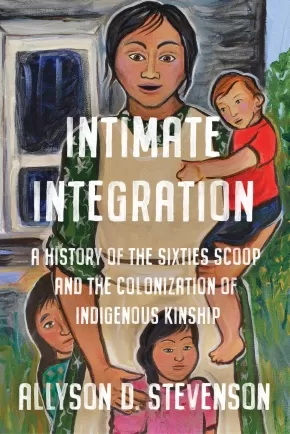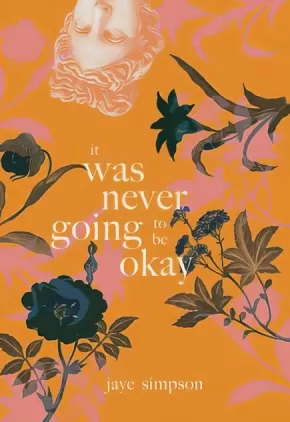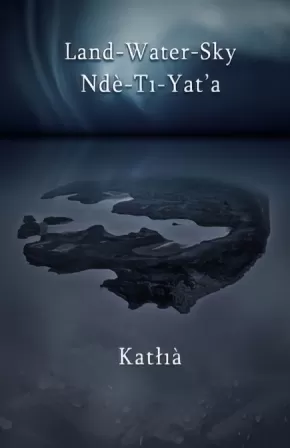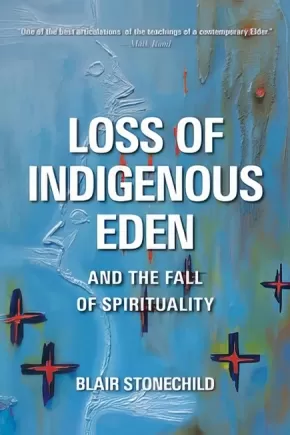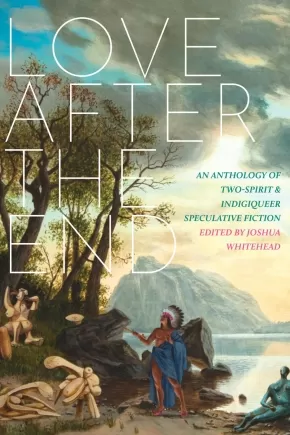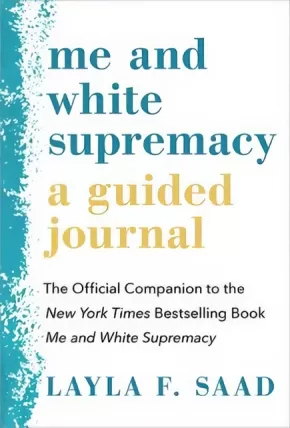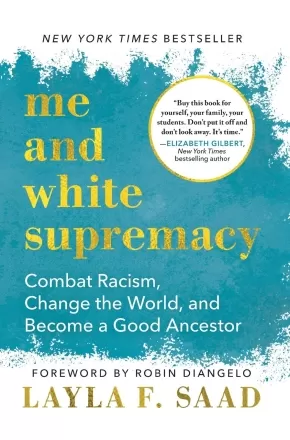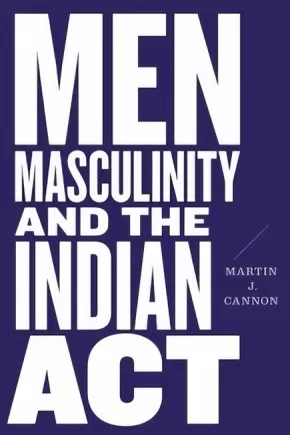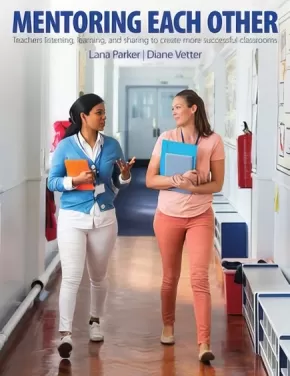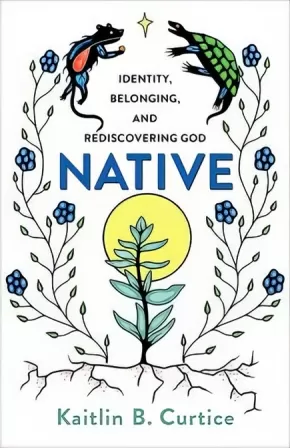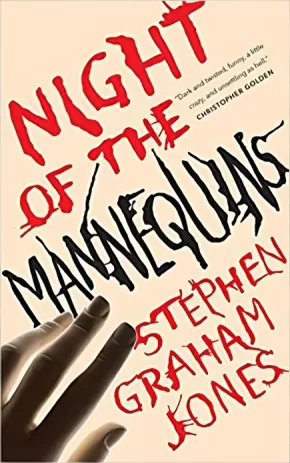Adult Book
Synopsis:
Privileging Indigenous voices and experiences, Intimate Integration documents the rise and fall of North American transracial adoption projects, including the Adopt Indian and Métis Project and the Indian Adoption Project. Allyson D. Stevenson argues that the integration of adopted Indian and Métis children mirrored the new direction in post-war Indian policy and welfare services. She illustrates how the removal of Indigenous children from their families and communities took on increasing political and social urgency, contributing to what we now call the "Sixties Scoop."
Making profound contributions to the history of settler colonialism in Canada, Intimate Integration sheds light on the complex reasons behind persistent social inequalities in child welfare.
Reviews
"While the process of Truth and Reconciliation in Canada has raised awareness about residential schooling, what remains less known is the equally devastating systemic and ongoing assault on Indigenous children through the child welfare system. Allyson D. Stevenson thoroughly maps out this truth, shedding new light on the role of the state in causing multigenerational trauma to Indigenous families." — Kim Anderson, Canada Research Chair in Indigenous Relationships, University of Guelph, author of A Recognition of Being: Reconstructing Native Womanhood
"Intimate Integration is politically sharp, carefully researched, and intellectually generous. Allyson D. Stevenson transforms how we see modern Canadian colonialism and the range of ways that Indigenous people have resisted and rebuilt in the face of it." — Adele Perry, Department of History and Women’s and Gender Studies, University of Manitoba
"Deftly weaving together academic training in history and lived experience as a Métis adoptee, Allyson D. Stevenson provides a path-breaking, powerful, eye-opening study that is essential reading for Canadians seeking to understand the trauma of child removal on Indigenous families and communities as well as their resistance and resilience." — Sarah Carter, Department of History and Classics, University of Alberta
Educator Information
Table of Contents
Prologue
Introduction
1. The Bleeding Heart of Settler Colonialism
Indigenous Legal Orders and the Indian Act
From wáhkôhtowin to Transracial Adoption
2. Adoptive Kinship and Belonging
Gender and Family Life in Cree Métis Saskatchewan
The Emergence of the Euro-Canadian Adoption Paradigm
Indigenous Adoption and Euro-Canadian Law
3. Rehabilitating the “Subnormal [Métis] Family” in Saskatchewan
4. The Green Lake Children’s Shelter Experiment: From Institutionalization to Integration in Saskatchewan
The Social Work Profession and the Rationalized Logics of Indigenous Child Removal in Saskatchewan
5. Post-War Liberal Citizenship and the Colonization of Indigenous Kinship
The 1951 Indian Act Revisions and the rise of “Jurisdictional Disputes”
6. Child Welfare as System and Lived Experience
Adopting a Solution to the Indian Problem
7. Saskatchewan’s Indigenous Resurgence and the Restoration of Indigenous Kinship and Caring
8. Confronting Cultural Genocide in the 1980s
Conclusion: Intimate Indigenization
Epilogue: Coming Home
Bibliography
Primary Sources
Interviews
Newspapers
Government Documents
Statues, Regulations, and Court Cases
Statutes of Canada
Saskatchewan Statues
Statutes of the United States
Archival Series
Printed Government Documents
Canada. Department of Citizenship and Immigration. Indian Affairs Branch. Annual Reports, 1950–1965
Printed Primary Sources
Secondary Sources
Websites
Additional Information
352 pages | 6.00" x 9.00" | 47 illustrations | Paperback
Synopsis:
Peg is struggling for survival at her boarding school. Three über-cool “it” girls take aim at Peg and make her life utterly miserable. When her beloved Grandmother dies she just wants to disappear. Then an unexpected gift arrives; inside it, Peg finds three cast-iron Canadian soldiers. In despair, she throws them against the floor. How can they help her? They are so small, and the girls’ shadow is so big. But, miraculously, the toys come to life as Indigenous snipers from World War I, just in time to wage an epic battle against the girls. A powerful play that will appeal to audiences both young and old, Iron Peggy uses a creative and ever-surprising blend of voices and sceneries to tell this moving story. With 2018 marking the 100th-year anniversary of WWI, Iron Peggy is an excellent introduction to its history and a touching testimony that not only celebrates the First Nation participation in the war effort but also a young girl’s personal victory.
Iron Peggy, by award-winning, international Métis performer and playwright Marie Clements, was commissioned by the Vancouver International Children’s Festival and premiered at Vancouver’s Waterfront Theatre in 2019. (Adapted from Vancouver International Children’s Festival online presentation.)
Educator Information
A powerful play that will appeal to audiences both young and old. With 2018 marking the 100th-year anniversary of WW I, Iron Peggy is an excellent introduction to its history and a touching testimony that not only celebrates the First Nations participation in the war effort but also a young girl’s personal victory. By award-winning, international Métis performer and playwright Marie Clements, commissioned by the Vancouver International Children’s Festival.
Recommended for grades 9 to 12 for Acting, Drama, English Language Arts, and Social Studies.
Additional Information
112 pages | 5.50" x 8.50"
Synopsis:
it was never going to be okay is a collection of poetry and prose exploring the intimacies of understanding intergenerational trauma, Indigeneity and queerness, while addressing urban Indigenous diaspora and breaking down the limitations of sexual understanding as a trans woman. As a way to move from the linear timeline of healing and coming to terms with how trauma does not exist in subsequent happenings, it was never going to be okay tries to break down years of silence in simpson’s debut collection of poetry:
i am five
my sisters are saying boy
i do not know what the word means but—
i am bruised into knowing it: the blunt b,
the hollowness of the o, the blade of y
Awards
- 2021 Indigenous Voices Awards winner for Published Poetry in English.
Reviews
"jaye simpson’s it was never going to be okay is a symphony of unrelenting rage and undying hope that beckons to be heard, seen and held with the utmost care. In this stunning debut they speak truths to the complexities of the body, land and memory through an intimately structured and poignant cadence. This collection will leave you longing for more and, in the legacy of trans Indigenous literature, change lives." — Arielle Twist, author of Disintegrate/Dissociate
"jaye simpson marshals a vast economy of images because their subject matter is as large as an entire country, as the colonial past, as structures of oppression and indifference that undermine Indigenous and trans livability. At the level of craft, simpson makes use of the codes of tragedy, polemic, autobiography and the lyric artfully and powerfully. By the book’s end, buoyed by its final beautiful and tender section, a kind of love letter to trans Indigenous peoples, one is called on to build a new world. In this way, jaye simpson's poetry is a vital artifact of a decolonial future!" — Billy-Ray Belcourt, 2018 Griffin Poetry Prize winner for This Wound Is a World
Additional Information
112 pages | 5.50" x 8.00"
Synopsis:
In 1867, Canada’s federal government became responsible for the education of Indigenous peoples: Status Indians and some Métis would attend schools on reserves; non-Status Indians and some Métis would attend provincial schools. The chapters in this collection – some reflective, some piercing, all of them insightful – show that this system set the stage for decades of broken promises and misguided experiments that are only now being rectified in the spirit of truth and reconciliation. The contributors individually explore what must change in order to work toward reconciliation; collectively, they reveal the possibilities and challenges associated with incorporating Traditional Knowledge and Indigenous teaching and healing practices into school courses and programs.
Reviews
"This book provides innovative reflections on long-standing issues in Indigenous education in Canada and suggests possible pathways to address the educational debt that Canada owes Indigenous peoples. I recommend it to educators, students, and administrators, to anyone interested in learning about the history of residential schools, and to all readers who are interested in reconciliation and decolonisation." — Valentina de Riso, Nottingham Trent University, British Journal of Canadian Studies
"There is no doubting the importance of the subject tackled by this edited collection... In eleven highly diverse chapters, plus a substantial introduction by editor Sheila Carr-Stewart, this collection seeks to shed light on the mechanisms of educational exclusion and sound out the prospects for a different kind of education in the future." — Mark Fettes, Simon Fraser University, University of Toronto Quarterly
"Readers who are new to the topic, such as practicing teachers who wish to enhance their responsiveness to Indigenous students or undergraduate history majors, will gain accessible historical and policy context, alongside complex and nuanced representations of the challenges that pervade Indigenous education today." — Heather E. McGregor, Historical Studies in Education
"Knowing the Past, Facing the Future is critical reading for those invested in Indigenous education, as all Canadians ought to be. By confronting colonialism and racism as they intersect with reconciliation, the contributors of this collected work address the role and responsibility of education in decolonizing a society. I recommend this book be read by all educators."— Margaret Kovach, author of Indigenous Methodologies: Characteristics, Conversations, and Contexts
"New and seasoned readers to Indigenous education in Canada will value how the authors tackle old issues in new ways, uncover challenges that have been ignored, and present innovative possibilities that learn from the past for a much better future."— Jo-ann Archibald (Q’um Q’um Xiiem), co-editor of Decolonizing Research: Indigenous Storywork as Methodology
"This must-read collection of essays provides needed historic reflections on treaties and Indigenous peoples’ aspirations for education, and much needed insight, support, and research to address the reconciliation agenda and correct the longstanding educational debt owed Indigenous peoples."— Marie Battiste, author of Decolonizing Education: Nourishing the Learning Spirit
Educator Information
Contributors: Jonathan Anuik, Michael Cottrell, Karlee D. Fellner, Rosalind Hardie, Darryl Hunter, Harry Lafond, Solange Lalonde, Brooke Madden, Yvonne Poitras Pratt, Jane P. Preston, Larry Prochner, Noella Steinhauer
Additional Information
312 pages | 6.00" x 9.00" | Paperback
Synopsis:
A vexatious shapeshifter walks among humans. Shadowy beasts skulk at the edges of the woods. A ghostly apparition haunts a lonely stretch of highway. Spirits and legends rise and join together to protect the north.
Land-Water-Sky/Ndè-Tı-Yat’a is the debut novel from Dene author Katłįà. Set in Canada’s far north, this layered composite novel traverses space and time, from a community being stalked by a dark presence, a group of teenagers out for a dangerous joyride, to an archeological site on a mysterious island that holds a powerful secret.
Riveting, subtle, and unforgettable, Katłįà gives us a unique perspective into what the world might look like today if Indigenous legends walked amongst us, disguised as humans, and ensures that the spiritual significance and teachings behind the stories of Indigenous legends are respected and honored.
Reviews
“This book brought a lot of memory for me when Elders used to tell stories sitting around and visiting my parents and telling stories about nąhgąąÌ. The story was so descriptive the way the Elders told stories. I related to all the events of the story because its very similar to the stories I’ve heard. MahsıÌ Cho for keeping our stories alive.”— Maro Sundberg, Executive Director at Goyatiko Language Society
“In the era of pre-contact, ancient stories were deeply engrained in the landscape from which it derives from. They inspire traditional storytellers to pass onto current times, a frame to support today’s tellings and in this writing, it’s an extension too snippets of stories heard, the collisions of changing times of life in the raw, taking many forms of intrigue, an ongoing tradition, a shapeshifting.” — John B. Zoe, traditional knowledge expert from Tlicho Territory, Senior Advisor with the Tłı̨chǫ Government, Chairperson of Dedats’eetsaa: the Tłı̨chǫ Research & Training Institute
"Katlıa has created a masterpiece that brilliantly weaves intriguing characters, history, culture, love for the land, water and sky into a riveting and magnificent read." — Monique Gray Smith, author of Tilly and the Crazy Eights
Additional Information
176 pages | 6.00" x 9.00"
Synopsis:
As a follow-up to his award-winning The Knowledge Seeker: Embracing Indigenous Spirituality, Blair Stonechild continues his exploration of the Indigenous spiritual teachings passed down to him by Elders, and then moves his study further afield. He identifies the rise of what he terms a dominant wetigo worldview, marked by an all-consuming and destructive appetite that is antithetical to the relational philosophy of Indigenous thinking whereby all things are interrelated and in need of care and respect.
Based on Stonechild’s work with Indigenous peoples around the world, from Inuit communities in northern Canada, to the Mapuche in Chile, the Dalits in India and the Uighurs in the Xinjiang Autonomous Region of China, The Loss of Indigenous Eden and the Fall of Spirituality brings together and highlights the fundamental commonalities that connect all Indigenous nations, while calling for global recognition and respect of their rights and spirituality.
Reviews
“One of the best articulations in print of some introductory teachings of a contemporary Elder.” —Mark Rumi, professor of Religion and Culture, University of Winnipeg
“It is thought-provoking, philosophical, informative, and celebrates the resilience and strength of Indigenous spirituality and our relationships to the sacred.” —Kathleen E. Absolon-King, author of Kaandossiwin
Additional Information
288 pages | 6.00" x 9.00"
Synopsis:
A bold and breathtaking anthology of queer Indigenous speculative fiction, edited by the author of Jonny Appleseed.
This exciting and groundbreaking fiction collection showcases a number of new and emerging 2SQ (Two-Spirit and queer) Indigenous writers from across Turtle Island. These visionary authors show how queer Indigenous communities can bloom and thrive through utopian narratives that detail the vivacity and strength of 2SQness throughout its plight in the maw of settler colonialism's histories.
Here, readers will discover bioengineered AI rats, transplanted trees in space, the rise of a 2SQ resistance camp, a primer on how to survive Indigiqueerly, virtual reality applications, mother ships at sea, and the very bending of space-time continuums queered through NDN time. Love after the End demonstrates the imaginatively queer Two-Spirit futurisms we have all been dreaming of since 1492.
Contributors include Nathan Adler, Darcie Little Badger, Gabriel Castilloux Calderon, Adam Garnet Jones, Mari Kurisato, Kai Minosh Pyle, David Alexander Robertson, jaye simpson, and Nazbah Tom.
Reviews
"Many of the stories offer portraits of a dead Earth from which new life springs, and all are ultimately uplifting, hinting at a way forward through the darkness of the present. Drawing on deep wells of history and experience, these powerful stories are sure to impress." —Publishers Weekly
"The so-called end times feel so perilously close right now. With such a cacophony of anxiety, despair, and cynicism bearing down on us, it is sometimes easy to forget that Indigenous peoples have been here before, and we still remain to uphold our responsibilities to the world and to one another. Our stories guide us forward into an ever-uncertain future, just as they guide us back home. And as editor Joshua Whitehead affirms in the introduction, Love after the End is a book we need right now - and well beyond the now. The stories here are difficult, they're beautiful, they're hilarious and sad and frightening and hopeful. But more than all of that, they guide us back to ourselves and to our relations on a shimmering trail of song and stardust. The two-spirit visionaries in this collection remind us in so many ways that the world is a wounded relative in need of healing, and that to abandon her in this time of trial is to betray the sacred bonds of kinship that we were meant to carry with courage and compassion. I am grateful beyond words that this book is in the world, and grateful to the writers, artists, and editor for the gift of (re)imagining futures where Indigenous love, liberation, and laughter flourish far beyond the settler imaginary. —Daniel Heath Justice, author of Why Indigenous Literatures Matter
"Each of these smart, stunning, imaginative stories has not only fuelled my imagination but also filled my heart, reminding me how dramatically different it is to experience work written with absolute love. Reading Love after the End is like being handed a glass of fresh water in the middle of the desert." —Alicia Elliott, author of A Mind Spread Out on the Ground
Additional Information
192 pages | 5.80" x 9.00"
Synopsis:
Author Layla F. Saad wrote Me and White Supremacy to encourage people who hold white privilege to examine their (often unconscious) racist thoughts and behaviors through a unique, 28-day reflection process complete with journaling prompts. This guided journal, which includes the book's original weekly prompts and lots of space for note-taking and free-writing, is the perfect place to begin your antiracism journey. You will unpack:
Week One: White Privilege; White Fragility; Tone Policing; White Silence; White Superiority; White Exceptionalism
Week Two: Color Blindness; Anti-Blackness against Black Women, Black Men, and Black Children; Racist Stereotypes; Cultural Appropriation
Week Three: White Apathy; White Centering; Tokenism; White Saviorism; Optical Allyship; Being Called Out/Called In
Week Four: Friends; Family; Values; Losing Privilege; Your Commitments.
Awareness leads to action, and action leads to change. Create the change the world needs by creating change within yourself.
Additional Information
304 pages | 5.25" x 7.75"
Synopsis:
This eye-opening book challenges you to do the essential work of unpacking your biases, and helps white people take action and dismantle the privilege within themselves so that you can stop (often unconsciously) inflicting damage on people of color, and in turn, help other white people do better, too.
Based on the viral Instagram challenge that captivated participants worldwide, Me and White Supremacy takes readers on a 28-day journey, complete with journal prompts, to do the necessary and vital work that can ultimately lead to improving race relations.
Updated and expanded from the original workbook (downloaded by nearly 100,000 people), this critical text helps you take the work deeper by adding more historical and cultural contexts, sharing moving stories and anecdotes, and including expanded definitions, examples, and further resources, giving you the language to understand racism, and to dismantle your own biases, whether you are using the book on your own, with a book club, or looking to start family activism in your own home.
This book will walk you step-by-step through the work of examining:
- Examining your own white privilege
- What allyship really means
- Anti-blackness, racial stereotypes, and cultural appropriation
- Changing the way that you view and respond to race
- How to continue the work to create social change
Awareness leads to action, and action leads to change.
Reviews
"Layla Saad moves her readers from their heads into their hearts, and ultimately, into their practice. We won't end white supremacy through an intellectual understanding alone; we must put that understanding into action."—Robin DiAngelo, author of New York Times bestseller White Fragility
"Layla Saad is one of the most important and valuable teachers we have right now on the subject of white supremacy and racial injustice."—New York Times bestselling author Elizabeth Gilbert
"As an educator and writer in this space, I well understand the difficulties of productive discourse on topics like white supremacy, white fragility, and complicity. In Me and White Supremacy, Layla not only engages readers effectively – she hands them the tools they need to change themselves so that they can better the lives of millions of people worldwide." - Rachel Cargle, activist, writer, and lecturer
Additional Information
256 pages | 5.25" x 7.75"
Synopsis:
Canada’s Indian Act is infamously sexist. Through many iterations of the legislation a woman’s status rights flowed from her husband, and even once it was amended to reinstate rights lost through marriage or widowhood, First Nations women could not necessarily pass status on to their descendants.
That injustice has rightly been subject to much scrutiny, but what has it meant for First Nations men? In an original complement to studies focused on the implications of the act for women, Martin J. Cannon challenges the decades-long assumption of case law and politics that the act has affected Indigenous people as either “women” or “Indians” – but not both. He argues that sexism and racialization must instead be understood as interlocking within the law. This double discrimination has been used to disrupt gender complementarity between Indigenous men and women, and to undercut the identities of Indigenous men through their female forebears.
By restorying historically patriarchal legislation and Indigenous masculinity, Men, Masculinity, and the Indian Act encourages Indigenous men to begin to articulate the complex ways in which their life’s journey is shaped by discrimination directed at Indigenous women. Only then can a transformative discussion about Indigenous nationhood, citizenship, and reconciliation take place.
Scholars and students of Indigenous studies and gender studies will find this book of interest, as will activists, legal practitioners, and others concerned with Indigenous rights, feminism, nationhood, identity, and the Indian Act.
Reviews"
We need Martin Cannon’s meticulous and critical work to help us reimagine Indigenous identity in Canada. This book will long be a go-to reference for understanding the intersections of sexism and racism brought on by the Indian Act, and for determining sovereign identity pathways forward." — Kim Anderson, author of A Recognition of Being: Reconstructing Native Womanhood
Additional Information
192 pages | 6.00" x 9.00" | Paperback
Synopsis:
This practical book explores ways teachers can collaborate and learn from each other in formal and informal situations. It demonstrates that a mentoring relationship can benefit both new and experienced teachers. Full of strategies that are practical and easy to implement, the book offers solutions to common questions, opportunities, and challenges that face teachers every day. Based on extensive experience, this highly readable book includes personal histories and experiences around important values and advocates for honest reflection and meaningful feedback. An essential resource for all educators, the book champions reciprocal and ongoing processes of learning, listening, and sharing.
Educator Information
Key Features:
- This book features ready-to-use strategies demonstrate how mentoring for teacher excellence can be easily implemented in daily practice.
- Mentoring Each Other includes practical advice for educators who engage in mentoring relationship as well as valuable suggestions that help new teachers deal with classroom challenges.
- The authors have vast experience as mentors, classroom teachers, and university lecturers who present at major educational conferences across North America.
- This approach to mentoring is applicable to a broad range of professional learning communities and an increase in new teachers entering the system make this a much-needed resource for many.
Additional Information
160 pages | 8.38" x 10.88"
Synopsis:
How can social movements help bring about large-scale systems change? This is the question Jen Gobby sets out to answer in More Powerful Together. As an activist, Gobby has been actively involved with climate justice, anti-pipeline, and Indigenous land defense movements in Canada for many years. As a researcher, she has sat down with folks from these movements and asked them to reflect on their experiences with movement building. Bringing their incredibly poignant insights into dialogue with scholarly and activist literature on transformation, Gobby weaves together a powerful story about how change happens.
In reflecting on what’s working and what’s not working in these movements, taking inventory of the obstacles hindering efforts, and imagining the strategies for building a powerful movement of movements, a common theme emerges: relationships are crucial to building movements strong enough to transform systems. Indigenous scholarship, ecological principles, and activist reflections all converge on the insight that the means and ends of radical transformation is in forging relationships of equality and reciprocity with each other and with the land.
It is through this, Gobby argues, that we become more powerful together.
100% of the royalties made from the sales of this book are being donated to Indigenous Climate Action.
Educator Information
Table of Contents
Acknowledgments
Thinking Together About Changing Everything
The Climate and Inequality Crises in Canada
Understanding the Crises
Envisioning Alternatives
How We Get From Here to There
Taking Stock of Where We Are At and What Stands in Our Way
Overcoming the Barriers and Building More Powerful Movements
“We Get There Together, or We Don’t Get There at All”
Appendix
References
Index
Additional Information
266 pages | 6.00" x 9.00"
Synopsis:
The recipes and traditions found in this book reflect the culture and the knowledge of the Medicine Wheel, featuring 26 edible and medicinal plants that you can gather in nature as Carrie and her grandmother did.
Create a luxurious and natural beauty regime by crafting your own lotions, soaps and teas from all-natural ingredients. From stress-busting teas and bath bombs to skin-smoothing lotions and creams, get vibrant skin and a healthy glow with Carrie’s creations based on her grandmother’s traditional teachings.
"I remember gathering plants and berries with my grandmother while she shared her stories and her deep understanding of traditional plants and their uses. My grandmother healed us with her medicinal plants—everything from pink eye, sore throats, stomach ailments, aches and pains, and infections. She’d make us these beautiful, healing teas." –Carrie
Additional Information
144 pages | 6.00" x 7.75"
Synopsis:
Native is about identity, soul-searching, and the never-ending journey of finding ourselves and finding God. As both a citizen of the Potawatomi Nation and a Christian, Kaitlin Curtice offers a unique perspective on these topics. In this book, she shows how reconnecting with her Potawatomi identity both informs and challenges her faith.
Curtice draws on her personal journey, poetry, imagery, and stories of the Potawatomi people to address themes at the forefront of today's discussions of faith and culture in a positive and constructive way. She encourages us to embrace our own origins and to share and listen to each other's stories so we can build a more inclusive and diverse future. Each of our stories matters for the church to be truly whole. As Curtice shares what it means to experience her faith through the lens of her Indigenous heritage, she reveals that a vibrant spirituality has its origins in identity, belonging, and a sense of place.
Awards
- Foreword INDIES 2020 Book of the Year Award (SILVER Winner for Religion)
- 2021 Georgia Author of the Year Award (Inspirational)
- 2021 Midwest Book Award (Silver Winner for Religion/Philosophy)
Reviews
"It isn't very often that a book about identity--let alone dismantling white supremacy and patriarchy--reads like a poem, but that's Kaitlin. She is thoughtful decolonization set to music and wrapped in love. Her story is compelling and healing, and her path is an invitation to all of us, even as she challenges our assumptions and imaginations. I treasure each of these sacred words, rooted in her story and in the larger stories we still carry. This book can make all of us both more free and more connected to one another."- Sarah Bessey, author of Miracles and Other Reasonable Things and Jesus Feminist
"In the pages of Native, Kaitlin B. Curtice is a poet, professor, storyteller, and unapologetic truth-teller. This book is required reading for all those committed to learning the truth about the land we live on and the institutions we live inside of. It both stretched me and comforted me--it called me out and called me home. Curtice is a vital artist and teacher, and Native is her most important offering yet. It will remain on my shelf forever." - Glennon Doyle, author of Untamed and founder of Together Rising
"There is no doubt that Christianity has been the handmaiden to the destruction of Indigenous nations. Native is more than Kaitlin Curtice's testament. It is an indigenization of faith and, more important, a moral call not only for the Christian church but for everyone to reckon with the genocidal legacies of US settler colonialism and African slavery. As she humbly puts it, decolonization is an invitation and a gift for humankind to re-establish correct relations with each other--and the earth." - Nick Estes, cofounder of The Red Nation and author of Our History Is the Future: Standing Rock versus the Dakota Access Pipeline, and the Long Tradition of Indigenous Resistance
"Because Curtice's writing is so personal, engaging, hospitable, and invitational, readers quickly come alongside of her, accompanying her in her journey while beginning their own. She weaves stories of journeying, wandering, and creation into the structure of her writing, and invites and then challenges her readers to unpack the hard topics of white supremacy, racism, and European settler colonization that have affected each one of us since the Europeans first arrived in this land determined to strip Native Peoples of every trace of their being--personhood, identity, land, language, culture, and society. . . . Native: Identity, Belonging, and Discovering God serves as a guidebook for us to participate in God's reconciliation with God, with each other, and with ourselves."- Susie Carter-Wiggins, Presbyterian Outlook
Educator Information
Table of Contents
Introduction
Part 1: Beginnings
1. Land and Water
2. Journeying Stories
3. Creation Stories
4. My Own Beginning
Part 2: Searching for Meaning
5. The Problem of Whiteness
6. Stereotypes and Survival
7. A Heart Language
8. Gifts of Prayer
Part 3: The Struggle for Truth
9. Ceremony
10. Ancestors
11. Self, Examined
12. The Pain of Church Spaces
Part 4: Working
13. Wake-Up Calls
14. When the Church Gets to Work
15. Keeping Watch
16. Fighting Invisibility
Part 5: Bearing Fruit in a New World
17. Finding One Another
18. The Future of Decolonization
19. Returning
20. A New World for Our Children
Afterword
Additional Information
208 pages | 5.50" x 8.40" | Paperback
Synopsis:
Award-winning author Stephen Graham Jones returns with Night of the Mannequins, a contemporary horror story where a teen prank goes very wrong and all hell breaks loose: is there a supernatural cause, a psychopath on the loose, or both?
We thought we'd play a fun prank on her, and now most of us are dead.
One last laugh for the summer as it winds down. One last prank just to scare a friend. Bringing a mannequin into a theater is just some harmless fun, right? Until it wakes up. Until it starts killing.
Luckily, Sawyer has a plan. He’ll be a hero. He'll save everyone to the best of his ability. He'll do whatever he needs to so he can save the day. That's the thing about heroes—sometimes you have to become a monster first.
Reviews
"Suffused with questions about the nature of change and friendship, “Night of the Mannequins” is a fairy tale of impermanence showcasing Graham Jones’s signature style of smart, irreverent horror." —The New York Times
"Stephen Graham Jones’s range and his understanding of horror in fiction and film is staggering. In this novella he juggles—sometimes in very sly ways—slasher stories, coming of age horror, traditions of madness and unreliability, and Kaiju to create an amazingly speedy, voice-driven read that's tons of fun. Each new book of his gives his own take on a different facet of horror, and together they all add up to something really expansive and original." —Brian Evenson, author of Song for the Unraveling of the World
"Readers will delight more than once in the realization that they might be reading a different story from the one they thought was unfolding... trust Jones and enjoy the ride." —Shelf Awareness
Additional Information
144 pages | 5.00" x 8.00"

